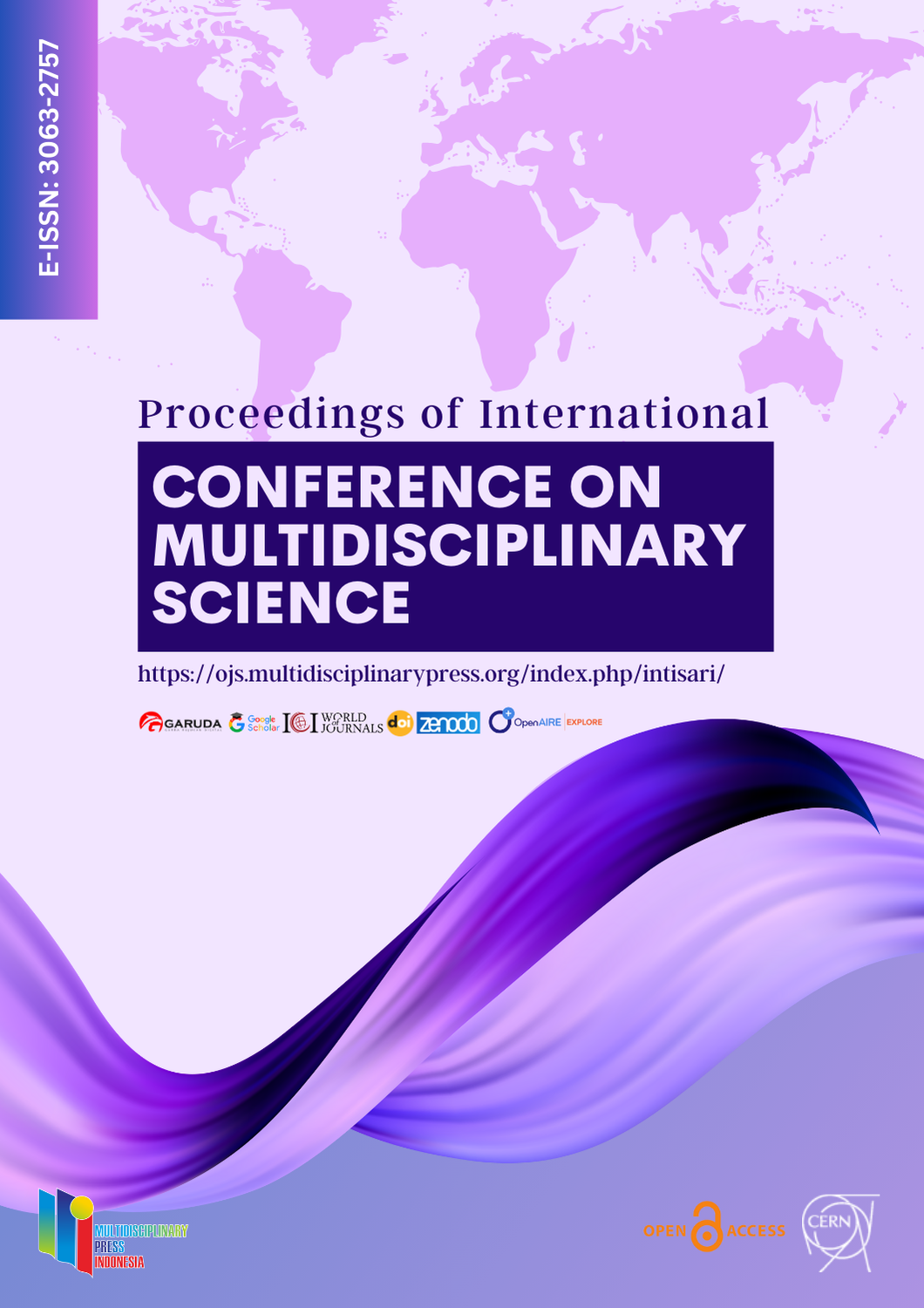Performance Determination
Keywords:
HR Quality, Work Ethics, Organizational Commitment, Employee PerformanceAbstract
This research was conducted to determine the influence of human resource quality and work ethics on employee performance with organizational commitment as an intervening variable at the Bank Indonesia Representative Office, North Sumatra Province. Effective and efficient achievement of company goals requires the continuous implementation of internal human resource management. The efficacy and efficiency of a company greatly depends on the advantages and disadvantages of resource development. This means that the company's human resources must be developed and nurtured in order to be able to improve their work capabilities, which will ultimately have an impact on improving performance. The results of this research are as follows: Work Ethics has a positive and insignificant effect on Employee Performance with the original sample being 0.079 and p value 0.322. Work Ethics has a positive and significant effect on Organizational Commitment with the original sample being 0.665 and p value 0.000. Organizational Commitment has a positive and significant effect on Employee Performance with an original sample value of 0.831 and ap value of 0.000. HR quality has a positive and insignificant effect on employee performance with an original sample value of 0.020 and ap value of 0.428. HR quality has a positive and significant effect on Organizational Commitment with an original sample value of 0.263 and ap value of 0.006. Work Ethics has a positive and significant effect on Employee Performance through Organizational Commitment indirectly with an original sample value of 0.552 and ap value of 0.000. HR quality has a positive and significant effect on employee performance through organizational commitment indirectly with the original sample being 0.218 and p value 0.009.
Downloads
References
Abdillah, Willy dan Jogiyanto. (2014). Konsep & Aplikasi PLS (Partial Least Square) untuk Penelitian Empiris. Yogyakarta: BPFE.
Aisyah, M. F., W. Utami1, Sunardi dan Sudarsih. (2017). Kualitas Sumber Daya Manusia, Profesionalisme Kerja, Dan Komitmen Sebagai Faktor Pendukung Peningkatan Kinerja Karyawan PDAM Kabupaten Jember. Jurnal Ekonomi Bisnis dan Akuntansi 4(1):131-135.
Ananda Sabil Husain (2015) Penelitian bisnis dan manajemen menggunakan partial least squares (PLS) dengan smart PLS 3.0, Modul ajar jurusan manajemen fakultas ekonomi dan bisnis unversitas Brawijaya
Fenty. (2016). Pengaruh Budaya Organisasi, Komitmen Organisasi dan Penerapan Prinsi-prinsip Good Corporate Governance (GCG) Terhadap Kineja Perguruan Tinggi dengan Pendekatan Balanced Scorecard (BSC). Vol. 7. No. 01. Juli.
Ginting, Desmon. (2016). Etos Kerja : Panduan Menjadi Karyawan Cerdas. Jakarta: PT. Elex Media Komputindo.
Kaswan (2015.) Pengembangan Sumber Daya Manusia. Bandung. Indonesia: Alfabeta
Matutina. (2015). Manajemen Sumber Daya Manusia. Jakarta : Gramedia Widia Sarana Indonesia.
Mangkunegara. (2017). Manajemen Sumber Daya Manusia Perusahaan, Bandung : Remaja Rosdakarya.
Priansa, Donni Juni. (2018). Perencanaan & Pengembangan SDM. Bandung. Alfabeta.
Sarwono, J., dan Narimawati, U. 2015. Membuat Skripsi, Tesis dan Disertasi dengan Partial Least Square SEM (PLS-SEM). Yogyakarta: Penerbit ANDI
Simanjuntak, P.J. (2015). Manajemen Evaluasi Kinerja. Edisi Ketiga. Cetakan Keempat. Fakultas Ekonomi Universitas Indonesia. Jakarta.
Sugiyono. (2022). Metode Penelitian Kuantitatif. Bandung: Alfabeta.
Downloads
Published
How to Cite
Issue
Section
Categories
License
Copyright (c) 2024 Leo Fauzi Hasibuan, Kiki Farida Ferine

This work is licensed under a Creative Commons Attribution 4.0 International License.





